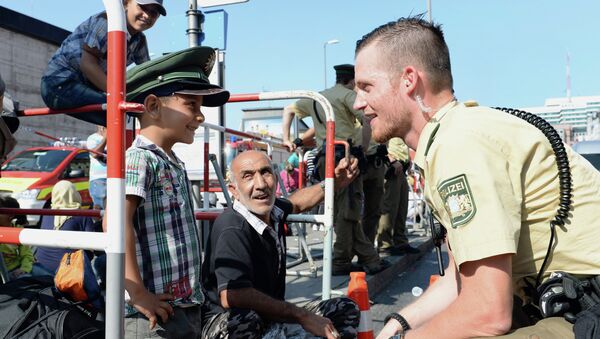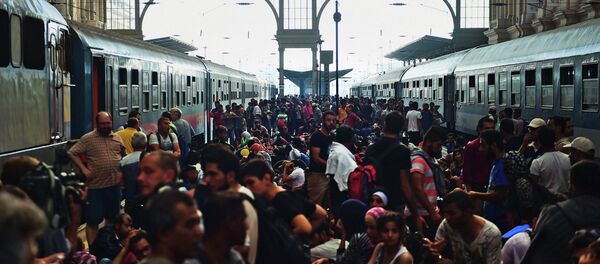"Germany is trying to use this situation seeing it as an opportunity to provide a badly needed source of labor and expand its commodity market," Thierry Mariani said.
He said that unemployment and birth rates were two things at consistently low levels in Germany, unlike in France.
Unemployment in Germany is currently at the low level of 6.4 percent, while it has one of the lowest birth rates in the world. In France, on the contrary, unemployment increased to 10.4 percent in July, the highest it has been in three years.
On Tuesday, German Federal Minister of Labor and Social Affairs Andrea Nahles said there were many areas of the German economy where there were shortages in skilled labor. She said Germany wanted to extend the opportunity to start a new life to refugees who had arrived in the country legally.
Nahles noted, however, that the thousands of migrants fleeing wars in the Middle East and Africa might in fact provide only an unorganized and unskilled source of labor, something that might create understandable tensions in society.
Hosting migrants may cost Germany between 1.8 billion and 3.3 billion euro (between $2 billion and $3.7 billion) in 2016, according to Nahles.
Sections of the German population have urged the country's authorities to support refugees. Others, however, are concerned about the possible burden on welfare services, depressed wages, rise in criminality and drastic changes to culture the migrants’ presence might engender.





